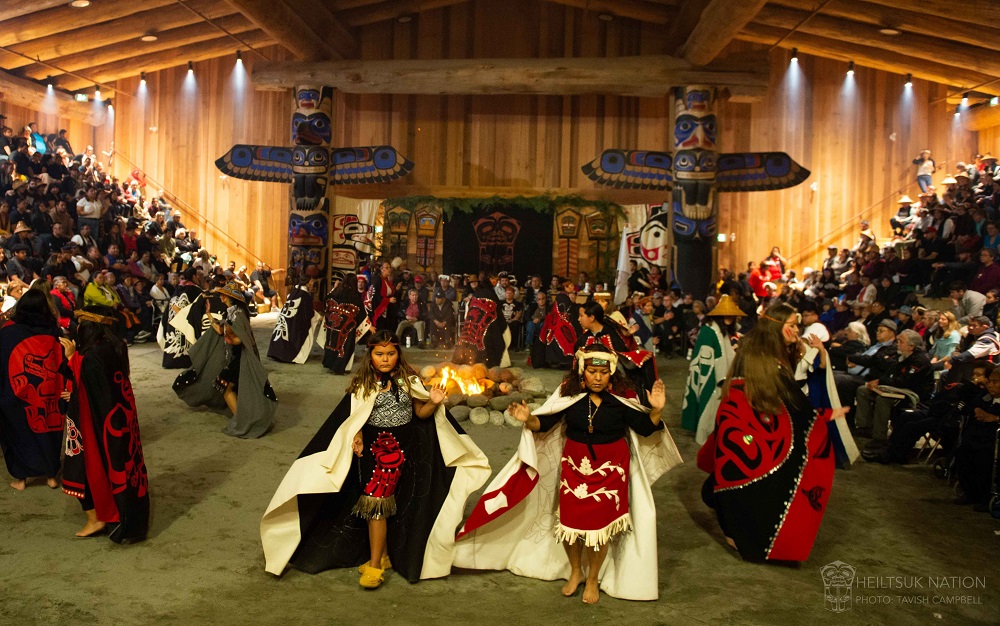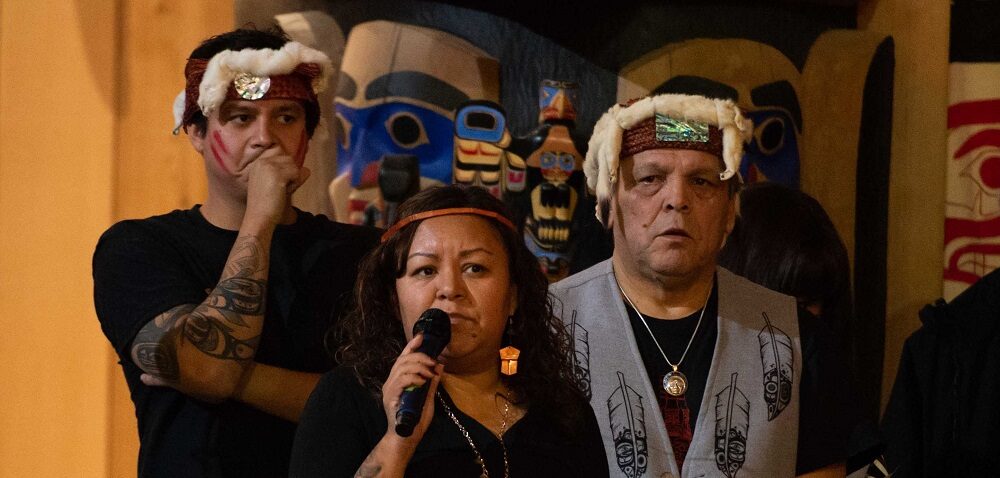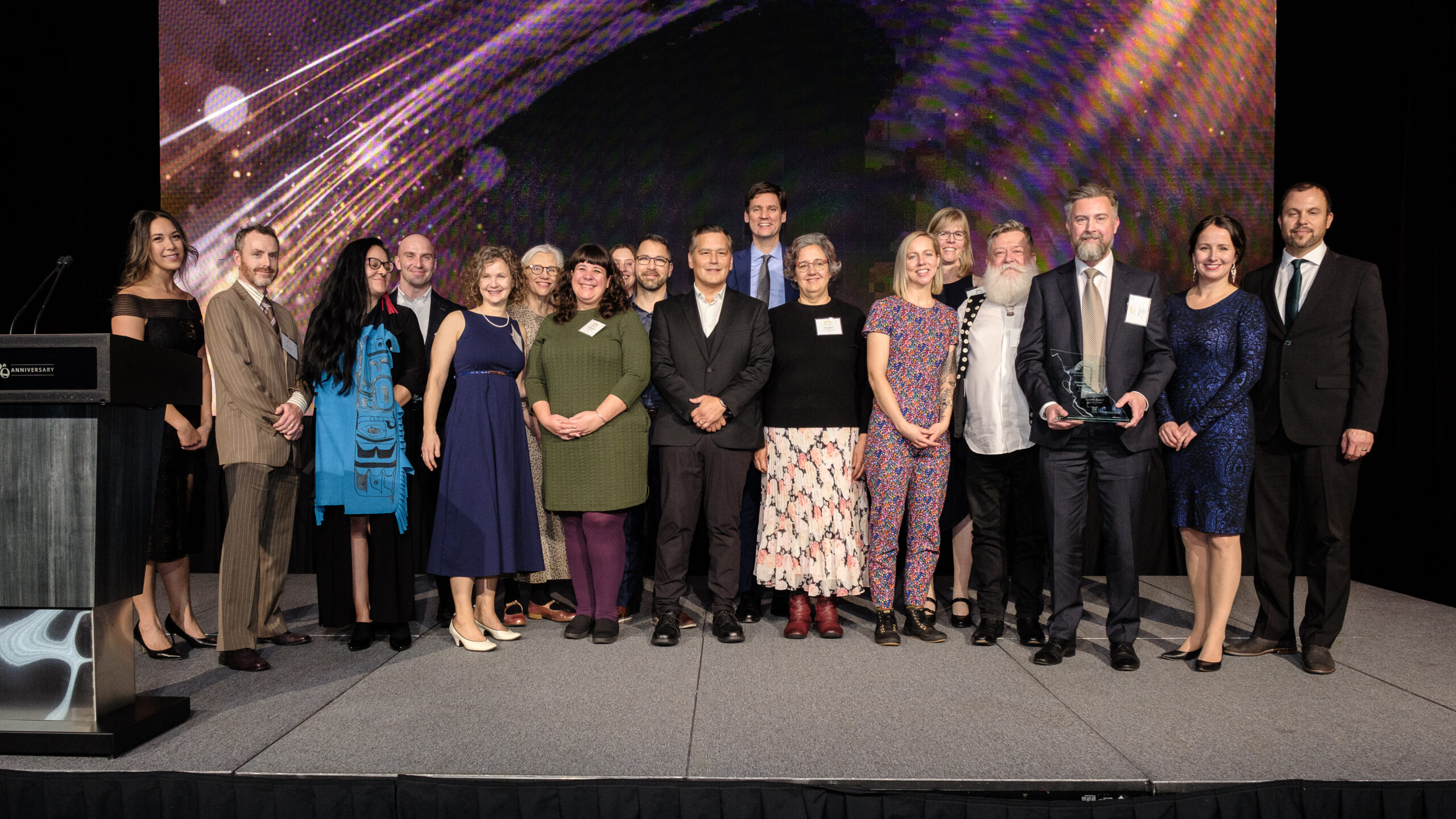A negotiator for the Haíłcístut Reconciliation process for the Heiltsuk Nation, Turza Brown discusses the ongoing challenge of “turning things around and making them right again.”
WHY IS THE PROCESS CALLED HAÍŁCÍSTUT?
When we went to the elders and told them we what we were trying to accomplish, they weren’t comfortable
with the term “Reconciliation.” Reconciliation refers to two people who have done wrong and are trying to make
that wrong right. Our elders thought that as Heiltsuk people we didn’t do anything wrong – it was the government
that systemically oppressed the Heiltsuk people, so this was something that the government needed to make right. The elders came up with word “Haíłcístut” that refers to “turning things around and making them right again.”
WHY DID YOU DECIDE TO TAKE ON WORK AT THE RECONCILIATION TABLE FOR THE HEILTSUK?
I know that deep down this kind of work is in my blood. My great-grandmother Brenda Campbell was the first president of the Native Sisterhood of BC. Growing up with grandmothers who incorporated Heiltsuk values into their daily lives helped me become the person I am today. When this job arose, I felt it was the perfect opportunity to ensure that these values were incorporated into Haíłcístut and into turning things around and making things right again.
WHAT IS A BIG CHALLENGE YOUR COMMUNITY IS FACING IN TERMS OF RECONCILIATION?
One of the biggest challenges in my community in terms of Reconciliation is the socio-economic gap. In negotiating with both governments, we always remind them that this gap was created systemically. We’re trying to recover from that. We’re trying to create a sustainable economy, a different relationship with both governments, and ultimately a governance system built off our forefathers’ and foremothers’ footprints.
WHAT IS ONE ACCOMPLISHMENT YOU ARE PROUD OF IN YOUR WORK?
I think one accomplishment I am most proud of is my ability to use my voice as a woman and as a Heiltsuk woman
especially. As women, there was a time when our voices didn’t matter. A time when as women, we were thought of as
less than. I am proud to be a voice at the table that is negotiating Heiltsuk laws and rights with government.
WHY IS FIRST NATIONS WOMEN’S LEADERSHIP IMPORTANT IN CFN COMMUNITIES?
Heiltsuk is a matriarchal society so there is a term that’s often used that women are the backbone of our society. Women are the ones who bear the future generations and women have always been great advisors to leaders because of all the knowledge and values that we hold. We’re the knowledge keepers, it’s in every single one of us as Heiltsuk women.
Just seeing all the women emerging in their rightful roles as First Nations leaders is inspiring to say the least. Chief Marilyn Slett is someone who inspires me every day, she’s a very strong woman leader. Chief Roxanne Robinson is the Chief Councillor of Kitasoo/Xai’xais and she’s inspiring. She’s been a very dear friend of mine for all our lives and I’m very proud of her. Another leader, Chief Linda Innes from Kitkatla, I had the opportunity to meet when she came to Bella Bella.
WHO ELSE INSPIRED YOU AND WHY?
My mother, my aunties, my grandmothers – basically all the female people in my life inspired me. Through their collective strength, I got a strong sense of identity that has helped shape me into who I am. If there’s one thing I can pass on to the next generation, it’s our Heiltsuk way of life, our laws and our values. My Gran was taught all these things by her mother and she has been teaching me since I was little. I remember standing with her at a potlatch while she was performing a ceremony for a coming of age. As her eldest grandchild, taking on a role was something that was introduced to me very early on.
AS A WOMAN, WHAT HAS BEEN THE MOST SIGNIFICANT BARRIER IN YOUR CAREER?
I have to say that the most significant barrier in my career is wage parity. It’s not just a First Nations issue but given
our matriarchal society I feel that women should be equal to men in all areas, including wages. As a woman, I feel that we are very committed to our work. We often overextend ourselves and a lot of the time we become under-appreciated and under-acknowledged.
WHAT ADVICE WOULD YOU GIVE TO YOUNG WOMEN WHO ARE TAKING ON FIRST NATIONS LEADERSHIP ROLES?
Trust the process and never give up. I dropped out of college after one semester at age 18 and became a mom
of three by age 27. I didn’t do things the way society thought was normal. At one point, I had three jobs to provide for
my family, and I was the oldest student in most of my classes at college and university. I struggled but somehow
got it all done. I was told by people throughout my whole life that I would never amount to anything and there are
barriers I’m still faced with every day as a woman. But as hard as it gets, I keep facing forward to continue to find a way to break down those barriers, because that is what we do.
WHAT WILL BE THE BIGGEST CHALLENGE FOR THE NEXT GENERATION OF WOMEN LEADERS?
I think the biggest challenge will be for them to find a balance to ensure we’re thriving in a modern-day system that still embodies Heiltsuk laws and values. We must never forget who we are and what it means to be Heiltsuk.
WHEN YOU FACE CHALLENGES IN YOUR WORK, WHAT INSPIRES AND ENCOURAGES YOU TO CONTINUE?
What inspires me to keep going is reflecting back on the work of my ancestors as well as looking forward to the future generations. Our ancestors have left us everything we need to create a modern-day governance system based
on Heiltsuk laws and Heiltsuk values. In order for us to be successful, we need to stand firm on keeping our Heiltsuk laws and values in place.
Turza received her traditional name Kwínxwála’agwa (Thunderbird Woman) from her Uncle William Wasden from Alert Bay. As a single mother of three children, she moved home to Bella Bella in 2017 and began as Communications Coordinator for the Reconciliation process. With an academic background in Simon Fraser University’s Resource and Environmental Management (REM) program, Turza is in her second year of representing her Nation at the negotiating table with Canada and British Columbia. She and her partner are happily raising a blended family.



